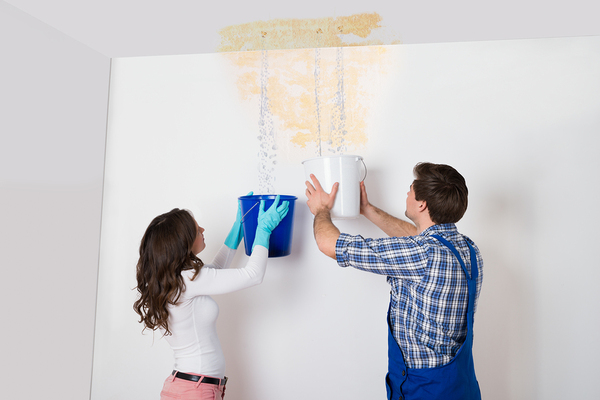Understanding the Top Factors for Water Leaks in Your Home
Understanding the Top Factors for Water Leaks in Your Home
Blog Article
What are your insights and beliefs about Top Causes of Home Water Leaks?

Leakages not only create waste of water but can additionally cause unnecessary damages to your residence and advertise unwanted organic growth. By looking as well as recognizing for everyday situations that trigger leaks, you can protect your residence from future leakages as well as unneeded damage.
Instantaneous temperature level changes.
Extreme temperature level adjustments in our pipes can cause them to increase as well as contract all of a sudden. This expansion and tightening might trigger cracks in the pipes, especially if the temperature are listed below cold.
Rusty water systems
As time passes by, your plumbing system ages and rust such as corrosion might start gnawing the pipelines. This might be the source of discoloration or bending on your pipes. This calls for an examination with your plumber immediately. Consider replacing the pipes considering that they are at a higher danger of corrosion than the newer designs if our plumbing system is old.
Malfunctioning Pipe Joints
Pipeline joints can wear away over time, resulting in water leaks. If you have loud pipes that make ticking or banging sounds, particularly when the hot water is turned on, your pipe joints are most likely under a great deal of pressure.
Intruding origins
The majority of water leakages start outside your house as opposed to inside it. If you discover an unexpected decrease in water pressure, claim in your faucet, take some time to go out and analyze your yard. You may see wet patches or sinkholes in your backyard, and that could suggest that tree roots are getting into water lines triggering water to leak out. You can have your plumber look for intrusion, particularly if you have trees or bushes near your home.
Poor Water Connectors
At times, a leakage can be created by loose pipes and pipelines that supply your appliances. In situation of a water connections leakage, you may observe water running straight from the supply line or puddles around your home appliances.
Clogged Drains
Obstructed drains pipes could be bothersome and inconveniencing, yet they can in some cases end up creating an overflow bring about burst pipelines. Keep eliminating any type of products that might decrease your drains that can block them to stay clear of such inconveniences.
All the above are reasons for leaks however not all water leaks result from plumbing leakages; some leakages might originate from roofing system leakages. All leakages must be fixed immediately to prevent water damages.
Leakages not only trigger waste of water yet can also create unneeded damage to your house and promote undesirable organic growth. By understanding and looking for day-to-day situations that create leakages, you can protect your home from future leakages and unnecessary damage. Today, we will certainly look at six leak causes that might be creating your pipelines to drip.
At times, a leak can be created by loose hoses and pipes that provide your home appliances. In instance of a water connections leakage, you may notice water running directly from the supply line or pools around your home appliances.
How To Check For Water Leak In Your Home
How To Check for Leaks
The average household's leaks can account for nearly 10,000 gallons of water wasted every year and ten percent of homes have leaks that waste 90 gallons or more per day. Common types of leaks found in the home are worn toilet flappers, dripping faucets, and other leaking valves. These types of leaks are often easy to fix, requiring only a few tools and hardware that can pay for themselves in water savings. Fixing easily corrected household water leaks can save homeowners about 10 percent on their water bills.
To check for leaks in your home, you first need to determine whether you're wasting water and then identify the source of the leak. Here are some tips for finding leaks:
Take a look at your water usage during a colder month, such as January or February. If a family of four exceeds 12,000 gallons per month, there are serious leaks.
Check your water meter before and after a two-hour period when no water is being used. If the meter changes at all, you probably have a leak.
Identify toilet leaks by placing a drop of food coloring in the toilet tank. If any color shows up in the bowl after 10 minutes, you have a leak. (Be sure to flush immediately after the experiment to avoid staining the tank.)
Examine faucet gaskets and pipe fittings for any water on the outside of the pipe to check for surface leaks.
Undetected water leaks can happen without the home or business owner even realizing. If you suspect a water leak, but not able to find the source. It is time to contact a professional water leak detection service, The Leak Doctor.
How To Find a Water Leak In Your Home
https://www.leakdoctor.com/blog/How-To-Check-For-Water-Leak-In-Your-Home_AE197.html

As a serious person who reads about How Fast Water Damage Can Ruin Your Home, I assumed sharing that excerpt was worthwhile. Remember to set aside a second to promote this blog entry if you enjoyed reading it. Thank you for your time. Visit again soon.
Sink issue? Dial. Report this page